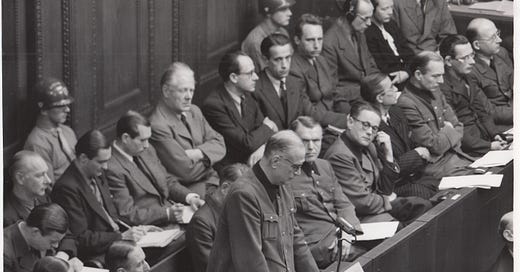1947-07-19, #4: Doctors' Trial (Paul Rostock's personal statement)
THE PRESIDENT: The defendant Paul Rostock.
DEFENDANT ROSTOCK: I have nothing to add to the pertinent statements by my defense counsel, Dr. Pribilla, regarding the individual points of the indictment in this trial, but with regard to the general position of German Medical Science during this war, there are a few words, which I would like to speak from this dock.
Within my direct examination, I have already stated why I, as the Chief of the so-called Department "Science and Research," I undertook it to begin to work for medical science as late as 1943 and 1944. At that time the problem was to avoid the considerable and acute danger, or, at least to reduce that, that teaching and research, and with Germany's universities, should be completely destroyed. When this had been prevented at the very last moment, there arose from it the task and the duty to improve the means and the possibilities of the basic research which had been more and more restricted in the process of the war and through their dwindling resources; research in Germany would have been completely destroyed.
Due to the chaotic development of the last year of the war, success was comparatively limited, but there was success and there were a few things which were saved beyond the end of the war.
Today on the strength of the evidence in this trial, I know the reasons which paralyzed the work at the time. It was the striving for power on the part of certain organizations which used the effective support of certain executive departments who held the unrestricted power of the Third Reich. It was the claim for a totalitarian conduct which was put forward by its organizations in the case of what they called the science of universities, but it was there where we founded the tradition of German science recognized the world over. With regard to that they pursued the aim as shown in some of the testimonies given in this trial and some of the documents submitted for a politically directed science of their own, which they wished to start. That was the reason why in this trial, the evidence given to you in this trial, the aims which I have referred to had to be without a complete success. Today at the end of this trial I know how the situation was. At that time, in the year 1944, we did not know of this masterly camouflaged and, therefore, so very dangerous opponent of that part of science which I myself had come up against. Throughout my life I have never by any means worked for one form of a state or another or for any political party in Germany, but, solely and alone, for my patients and for medical science.



